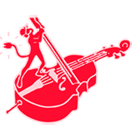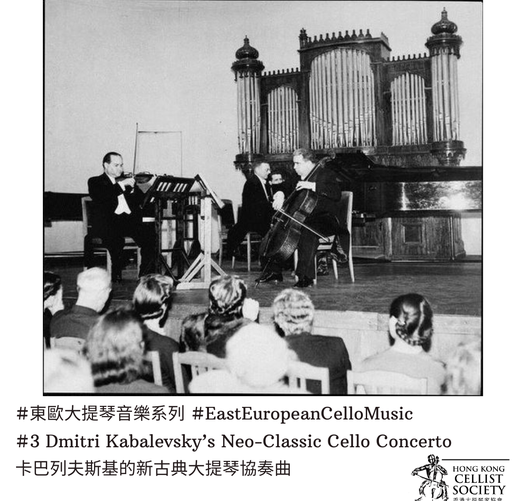In the last two editions of the Eastern European Cello Music series, we have introduced two works of cello music by musicians from small Eastern European countries, but what about the great country of Russia? This time we would like to talk about Dmitri Kabalevsky, whose musical and educational achievements have influenced the future generations of Russian classical music.
Growing up in Moscow as a child, Kabalevsky realised his interest in music at an early age and went on to study at the local conservatory. He was an all-around musician, and by the age of thirty had already composed a series of concertos, chamber music, opera, and even children’s music and the the-emerging film scores. He also shared music reviews on radio programmes and edited music magazines, making him a very versatile artist for the classical music scene at the time.
What Kabalevsky had in common with the Khachaturian’s mentioned earlier was the conscious incorporation of the rhythms and scales of Eastern European folk music into his compositions. As a result, many comparisons were made between the two in the music scene at the time. However, Kabalevsky’s philosophy towards music and society seemed to be stronger. While many musicians in the twentieth century sought to innovate, Kabalevsky’s post-war efforts to pursue a neo-classical style rather than abandoning tradition were also well received by the public. One of his successes was his Cello Concerto No.1. He still enjoys the lyricism of the cello’s song-like sound with its chromatic harmonies (Diatonic, i.e. chords based on the pentatonic scale), the interplay of major and minor keys, and the common framework of ‘fast-slow-fast’ in the concerto.
Cello Concerto No.1 is the centrepiece of his Concerto Trilogy, which was influenced by his experience of teaching music in public schools and his desire to write melodically simple but challenging movements that would allow his students to progress in their playing. The work was premiered by Sviatoslav Nikolayevich Knushevitsky, who was still a student at the time and was later promoted by Kabalevsky to principal cello in the Bolshoi Theatre Orchestra. The importance of this work to the Soviet classical music scene at the time is evident.
Photo Source: SHEET MUSIC CATALOG OF CLASSICAL MUSIC; akamaihd.net


 繁體中文
繁體中文